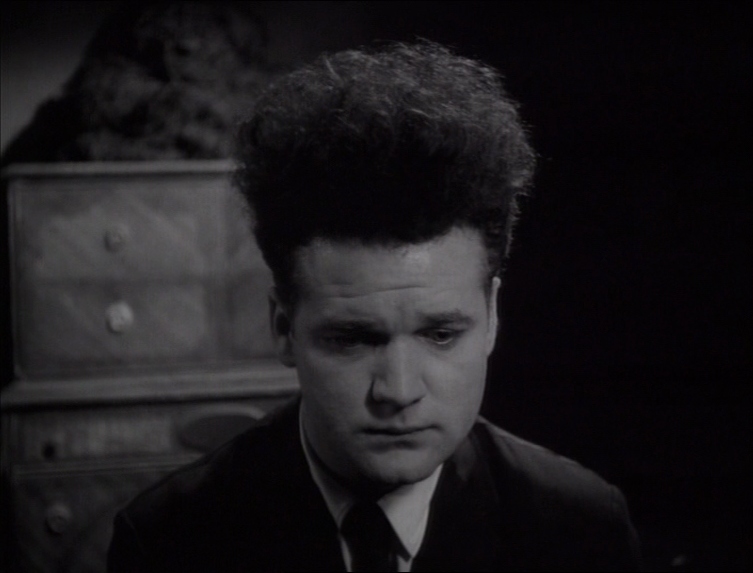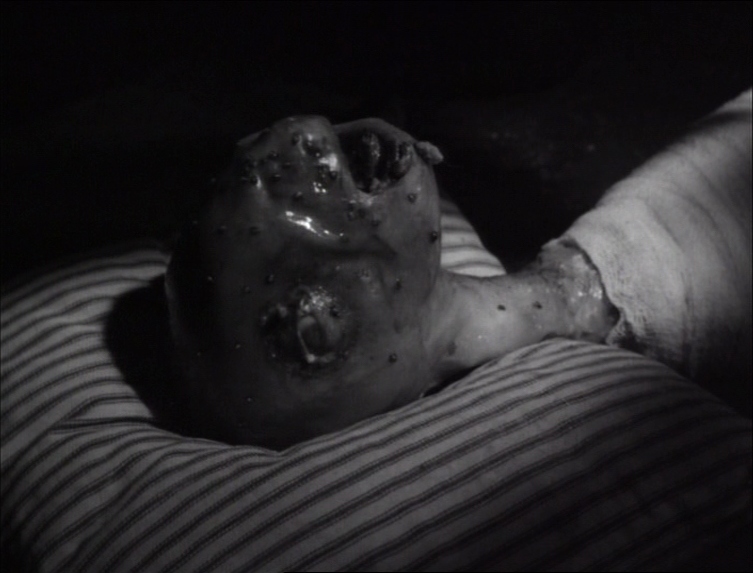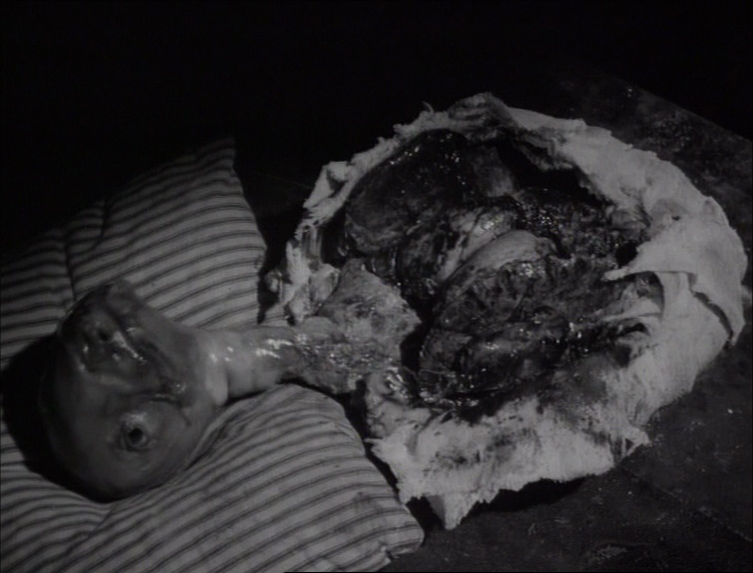
There are films that speak to your fears. Then there are films that feel like your fears speaking directly to you, from a place deep within your own subconscious that you never knew existed.
David Lynch’s 1977 debut, Eraserhead, is not a film to be merely watched; it’s an experience to be endured, a monochrome fever dream that crawls under your skin and relentlessly gnaws at your sense of reality. For the connoisseurs of psychological horror, this is a masterclass in the monstrousness of the mundane, and the visceral terror of existence itself.
We are introduced to Henry Spencer (Jack Nance), a man adrift in a desolate, industrial wasteland. His apartment is a purgatorial box, a barren sanctuary of buzzing radiators and mounds of dirt. This isn’t just a setting; it’s a physical manifestation of Henry’s internal landscape: isolated, sterile, and teeming with an almost unbearable ambient dread. The relentless, oppressive sound design – a constant hum, hiss, and clatter – is a character in itself, mirroring the cacophony of anxiety within Henry’s mind.

The horror begins, as all good nightmares do, with a perversion of the natural. Henry’s “girlfriend,” Mary X (Charlotte Stewart), reveals she’s pregnant, leading to an excruciatingly awkward dinner with her bizarre, unsettling family. This domestic scene, normally a symbol of comfort, becomes a grotesque parody: the wriggling “man-made” chickens, the bizarre questions, the forced, joyless pronouncements. Lynch immediately establishes that even the most fundamental human rituals are capable of being warped into pure, unadulterated unease.
And then, the baby. Oh, the baby. This is the grotesque heart of Eraserhead’s psychological torment. Not a joyous new life, but a bandaged, reptilian abomination that writhes and wails incessantly. It’s an unforgettable piece of body horror, a horrifying physical manifestation of every unspoken fear about parenthood, responsibility, and the potential for life to emerge as something utterly alien and demanding. It’s the ultimate ‘unwanted’ – a burden that consumes all light and joy, replacing it with an unending, high-pitched shriek.
Henry is trapped. Mary eventually abandons him, leaving him with the perpetually screaming infant, intensifying his isolation and despair. His attempts to care for the creature are desperate and futile, punctuated by surreal visions. The “Lady in the Radiator” (Laurel Near), singing her ethereal “In Heaven Everything Is Fine,” represents a yearning for escape, a fantasy of peace in a world drowning in noise and decay. But even this dream offers no true solace; her stomping on the worm-like creatures is a chilling visual echo of infanticidal urges.

Eraserhead is a profound exploration of anxiety, particularly the anxieties surrounding conception, birth, and the crushing weight of unforeseen responsibility. Henry’s world is devoid of genuine connection or warmth. Sex is presented as a fumbling, alienating act; love is absent. The “family unit” is portrayed as a source of immense suffering and grotesque obligation. Lynch taps into a primal, almost universal fear: the terrifying loss of self and freedom that can accompany the creation of new life, especially when one is unprepared or deeply uncertain.
The film’s industrial backdrop is key. It’s a world where humanity is consumed by its own creations, where the machines groan and churn, mirroring the internal mechanical grind of Henry’s own despair. His eventual, horrifying act of destroying the creature is not one of malice, but of a desperate, terrifying mercy, a violent attempt to erase the burden that has consumed his existence. This act doesn’t bring peace in the traditional sense, but a chilling dissolution into the grand, cosmic machinery that seems to dictate all life and death.
Eraserhead doesn’t provide answers; it presents a raw, unfiltered vision of existential dread, filtered through the warped lens of a profoundly anxious mind. It’s a film that forces us to confront the deepest, most uncomfortable corners of the human condition: the fear of commitment, the revulsion of the body, the terrifying responsibility of creation, and the pervasive sense of being hopelessly alone in a cold, indifferent universe. It’s a truly unique horror experience, because it reveals that sometimes, the most terrifying monster isn’t a creature from another dimension, but the one you accidentally bring into your own home, a distorted reflection of your deepest, darkest fears.





